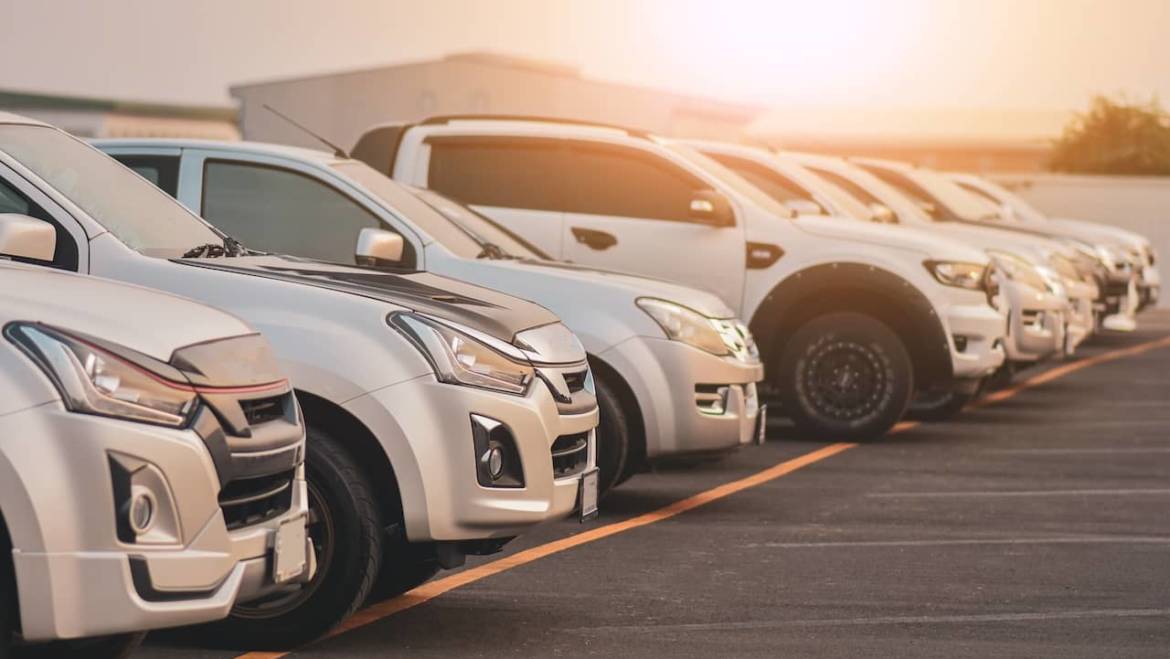If you’re a business owner with a fleet of vehicles, you know that having the right insurance is essential. But with so many options out there, it can be tough to figure out what kind of coverage you need. That’s why we’re here to help.
In this post, we’ll give you a crash course in commercial fleet insurance, from the basics of coverage types to getting the best rates for your business. Whether you’re just getting started with fleet insurance or are looking to renew your policy, this guide will help get you on the right track.
What Fleet Insurance Means
Fleet insurance is a type of commercial vehicle insurance that provides coverage for several vehicles under a single policy. It can include liability protection, property damage, collision and comprehensive coverage, and more. The types of vehicles covered can vary, but they typically include cars, trucks, vans, buses, and other units used for commercial purposes.
Why Do You Need Fleet Insurance?
There are a few key reasons why you might need fleet insurance for your business:
- To protect your vehicles: Your fleet is a significant investment, and you’ll want to make sure it’s properly protected in case of an accident or other incident.
- To comply with the law: In most states, you’re required to have some level of insurance for your commercial vehicles. Fleet insurance can help you meet those requirements.
- To protect your employees: If your employees use their own vehicles for work purposes, they may not be covered by your personal auto insurance policy. Fleet insurance can provide them with the protection they need.
If you have a business with multiple vehicles, you should consider getting fleet insurance. Even if you’re not required to carry it by law, it’s still a good idea to have in case something unfortunate happens on the road.
How Fleet Insurance Works & What It Covers
Fleet insurance is designed to protect businesses from the risks associated with owning multiple vehicles. Coverage can vary depending on the policy, but it typically includes protection for:
- Liability: If you’re sued after an accident, liability coverage can help pay for damages.
- Property damage: If your vehicles cause property damage, fleet insurance can help cover the costs.
- Collision: If your vehicles collide with another car or object, collision coverage can help pay for the damages.
- Comprehensive: This covers damages from events other than collisions, such as theft or vandalism.
In addition to these basic coverages, some policies offer optional extras like roadside assistance and rental car reimbursement. It’s important to carefully review your policy and make sure it includes the coverages you need.
How Much Does Fleet Insurance Cost?
The cost of fleet insurance will vary depending on a number of factors, including the size of your fleet, the types of vehicles you have, your driving history, and more. In general, you can expect to pay more for fleet insurance than you would for a personal auto insurance policy. However, there are a few ways you can save on your premium:
- Shop around: Don’t just renew your policy with the same company every year. Get quotes from several insurers to make sure you’re getting the best rates, or work with an experienced insurance advisor that can help you find a policy that offers the best benefits.
- Bundle your policies: If you have other types of insurance coverage, like general liability or property insurance, you may be able to save by bundling them with your fleet policy.
- Raise your deductibles: Choosing a higher deductible can help lower your premium. Just make sure you have enough money saved up to cover the costs if something happens.
- Ask about discounts: Many insurers offer discounts for things like safe driving records or having multiple policies.
There are a few things to keep in mind when it comes to fleet insurance. First, coverage can vary depending on the policy, so make sure you understand what’s included before you buy. Second, you’ll need to have a separate policy for each vehicle you want to insure. Finally, if you have employees who use their own vehicles for work purposes, they’ll need to be listed on the policy in order to be covered.
What Information Is Needed for a Fleet Insurance Quote?
When you’re ready to get a fleet insurance quote, you’ll need to have some information on hand. This includes:
- The make, model, and year of each vehicle in your fleet
- Your drivers’ names and dates of birth
- Your drivers’ license numbers
- Your drivers’ accident history
- Your vehicles’ VIN numbers
- Your business name and address
If you’re not sure what all this information is or where to find it, InsurA can help. Once you have everything you need, getting a quote is quick and easy.
Things To Remember Before You Buy Fleet Insurance
Finally, before you go ahead and sign an agreement for any commercial fleet insurance plan, keep these things in mind:
Don’t overpay
As with anything, you don’t want to overspend on your fleet insurance. Make sure you compare quotes from several different insurers to find the best rates.
Consider your needs
What coverages do you need? You may not need all the bells and whistles if you have a small fleet.
Get expert help
If you’re not sure what to look for or how to get started, speak with an experienced insurance advisor. They can help you find the right policy for your business and budget.
Don’t wait until it’s too late
If you wait until something happens to get insurance, it may be too late. Make sure you have coverage in place before you need it.
If you have any questions about fleet insurance or would like help finding the right policy for your business, InsurA can assist you. We have years of experience helping businesses find the right coverage at the best possible price.

Add Comment